Teens Face Risk of DWI Arrests During Prom and Graduation
 Teen drunk driving has declined dramatically since 1991. According to USA Today, there has been a 54 percent reduction in the number of teenagers who get behind the wheel after consuming alcoholic beverages. Despite the dramatic decline in teen impaired driving, the law continues to impose more stringent limitations on young people when it comes to alcohol consumption and driving. Further, an arrest for DWI can result in harsh penalties for young people.
Teen drunk driving has declined dramatically since 1991. According to USA Today, there has been a 54 percent reduction in the number of teenagers who get behind the wheel after consuming alcoholic beverages. Despite the dramatic decline in teen impaired driving, the law continues to impose more stringent limitations on young people when it comes to alcohol consumption and driving. Further, an arrest for DWI can result in harsh penalties for young people.
Teens and parents need to be aware of the tremendous consequences an impaired driving conviction can have as prom season and graduation season approaches. Both prom and graduation are times of year when rates of impaired driving among young people are historically higher.
Law enforcement officers are aware of the high rates of teen impaired driving during these events and there may be increased patrolling on both prom and graduation nights. Teens who are pulled over by police may unfortunately be unaware of their rights. Parents and teens need to ensure they get help with DWI defense if an arrest occurs because a conviction for impaired driving can have profound consequences for a young person’s future.
Teens Face Added Risks of DWI Arrest During Prom and Graduation Season
When police increase patrolling efforts on special event nights, teens have a greater chance of being pulled over by police. Law enforcement officers are supposed to have probable cause before stopping a driver, but many teens are not aware that law enforcement shouldn’t force them to stop their cars unless they’ve broken a traffic law or have engaged in behavior that gives reason to suspect impairment.
Once a teen has been pulled over, few young people are going to be comfortable declining a field sobriety test or a breath test. Many young people are not aware of the fact these tests can be inaccurate and they do not realize they have the right to refuse to take them. Teens can be intimidated when pulled over by police and may not feel as comfortable as adults would in politely questioning the reason for the traffic stop or the justification for being asked to take tests of impairment.
Unfortunately, if a teen agrees to take these tests, this can provide further evidence to be used against them in a DWI case. Teens can actually face consequences for impaired driving with a blood alcohol concentration that is far below the .08 legal limit for adults as a result of zero tolerance laws. This means a young person could have just a small amount of alcohol and still be in trouble with the law.
When a teen does face consequences for impaired driving, the affects can also be more profound than the consequences for adults. Huffington Post warns that being arrested for impaired driving is one of the top five reasons why a young person might have a college admission rescinded. To prevent undesirable consequences, teens and their parents need to ensure they get prompt help to avoid an impaired driving conviction after a teen is pulled over on prom night or graduation.





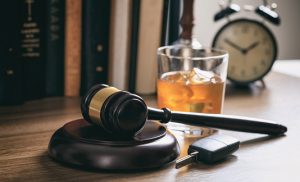 A DWI charge is serious, but not as serious as being accused of causing an accident while driving under the influence. If you are accused of causing a collision while driving drunk, you can expect to face much more serious criminal charges with much harsher penalties. Raising a vigorous
A DWI charge is serious, but not as serious as being accused of causing an accident while driving under the influence. If you are accused of causing a collision while driving drunk, you can expect to face much more serious criminal charges with much harsher penalties. Raising a vigorous 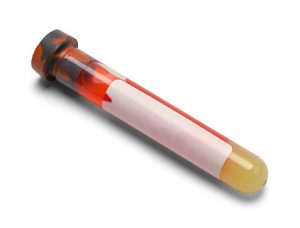 Many defendants who are arrested for impaired driving undergo testing of their blood, breath, or urine in order to determine the level of drugs or alcohol in their system. Prosecutors use toxicology tests and lab reports to show a defendant was too impaired to drive. Defendants who know there are lab results indicating impairment may feel as if this evidence is sufficient for a prosecutor to meet the burden of proof, demonstrate guilt beyond a reasonable doubt, and secure a conviction.
Many defendants who are arrested for impaired driving undergo testing of their blood, breath, or urine in order to determine the level of drugs or alcohol in their system. Prosecutors use toxicology tests and lab reports to show a defendant was too impaired to drive. Defendants who know there are lab results indicating impairment may feel as if this evidence is sufficient for a prosecutor to meet the burden of proof, demonstrate guilt beyond a reasonable doubt, and secure a conviction.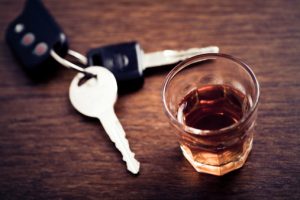 Police, prosecutors, and lawmakers have routinely passed strict laws against drunk driving and have sometimes engaged in tactics to enforce DWI laws which abridge defendants’ rights.
Police, prosecutors, and lawmakers have routinely passed strict laws against drunk driving and have sometimes engaged in tactics to enforce DWI laws which abridge defendants’ rights.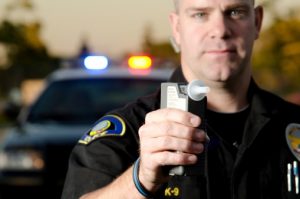 In 2013, there was a decline in the number of impaired driving arrests in Houston over Thanksgiving weekend.
In 2013, there was a decline in the number of impaired driving arrests in Houston over Thanksgiving weekend.  Football and alcohol-use seem to go hand-in-hand, both for players and fans. According to
Football and alcohol-use seem to go hand-in-hand, both for players and fans. According to  A driver in Texas who is found guilty of operating a vehicle while impaired by alcohol can face a
A driver in Texas who is found guilty of operating a vehicle while impaired by alcohol can face a 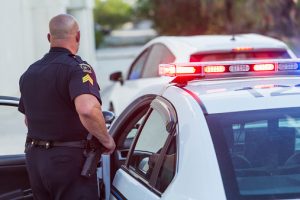 When police pull you over, they may ask you questions like whether you have consumed any alcohol. A law enforcement officer may also ask you how much you’ve had to drink.
When police pull you over, they may ask you questions like whether you have consumed any alcohol. A law enforcement officer may also ask you how much you’ve had to drink.
